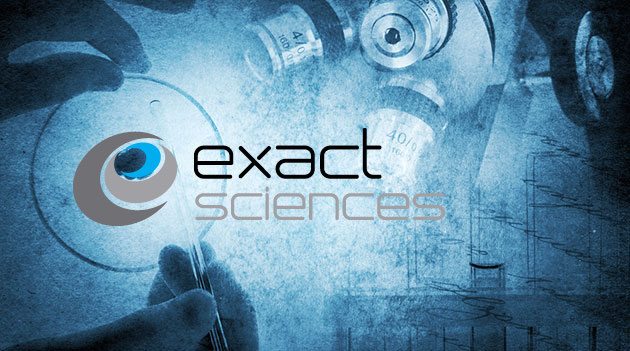
Back in October, 2014, when the FDA approved Exact Sciences Corporation’s (NASDAQ:EXAS) diagnostic tool Cologuard, markets had high expectations for the technology. The company gained more than 40% on the announcement, and over the following year, more than 80% to 2015 highs, on what analysts had slated as a $4 billion market potential. Fast forward 18 months, however, and things haven’t gone quite as planned. Exact sold just 4,000 Cologuard test units in its first commercialization quarter (Q4, 2014), and generated a little over $39 million sales throughout the entirety of 2015. An October 5, 2015 decision that failed to grant either a USPSTF A or B rating to the company’s technology caused an overnight crash, and overarching negative sentiment has eaten away at the company’s market capitalization ever since. It’s now valued at just $617 million – an 81% discount on its 2015 peak valuation.
Click Here For More Market Exclusive Updates & Analysis
The question now, is whether or not its valuation is truly representative of its potential? Have weak sales figures translated to an oversell, and in turn, is the current discount an opportunity to buy in cheap? Perhaps. Here’s why.
First, a quick look at the test. It’s a stool sample test designed for self administration, which detects the presence of colon cancer, or pre cancerous signs that cancer may develop. Colon cancer is one of the most preventable cancers in the developed world – it takes ten years for pre cancerous polyps to develop into tumors – and early detection leads to a 90% five-year survival rate. However, 60% of cases are diagnosed in later stages, primarily because its the later stages that start to produce symptoms. Late stage diagnoses have a 10% five-year SR.
Why are the majority of diagnoses late stage? It’s rooted in diagnostics. A patient has two choices – a selection of two self administered tests (similar to Cologuard) called FOBT and FIT, both of which test for blood in the stool, and an invasive procedure (sigmoidoscopy or colonoscopy).
The self administered test is far from 100% effective, and often results in false negatives. The invasive procedures are – as the description suggests – invasive, and this puts people off going to a physician to have them.
With Cologuard, Exact is trying to improve on the efficacy of the current FIT and FOBT tests, while maintain a non-invasive screening procedure. It does this by not only testing for blood in the stool, but by also testing for eleven DNA and protein biomarkers in three genes closely associated with colon cancer, and the polyps that form pre-cancer. Clinical tests that formed the basis of the FDA application, and extension studies that have since completed, support the hypothesis that Cologuard is more accurate than FOBT and FIT. In the interest of balance here, it should be noted that the tests also suggested that Cologuard produced more false positives (i.e. results that pointed to a patient having cancer when he or she doesn’t) than current SOC tests, but I’m sure most would agree a false positive is better than a false negative long term.
So what needs to happen for Exact to meet its own expectations, and what are the risk factors that may stop it doing so?
The main target has to be picking up the aforementioned A/B rating from the USPSTF. If it gets this rating, it becomes SOC diagnostic, meaning a physician will almost always mention it as an option for patients. At the moment, it’s simply an alternative rating. At the time of FDA approval, Medicare proposed national coverage (side note: this was the first time ever this had happened), and if Cologuard can pick up that rating there is no reason it won’t achieve blockbuster revenues. It’s non invasive, and more accurate than current SOC. So, this begs the question, what are the chances of it picking up the rating and recommendation of the USPSTF? The answer – we don’t know yet. All we know is Exact is working with the agency to push for the rating, and that it expected a decision late 2015. That decision is yet to come, but when it does, if it’s a recommendation nod, there could be a serious upside revaluation in Exact stock.
The company is also rolling out its sales force to push the test through physicians, and has just launched a TV commercial campaign to try and sell direct to customers. The test is covered by Medicare, and a number of major insurers cover it, so this should boost direct sales.
What about risks? Well, without the rating, the chances of Exact pulling in the multibillion dollar revenues it first pitched is slim. This doesn’t mean it wont generate decent sales, just not blockbuster. This could have an impact on its capital structure, however. In expectations of Cologuard becoming SOC, it put a huge infrastructure in place to accommodate demand – a processing facility capable of processing more than a million tests a year, a huge sales force etc.) – and it’s using its current capital balance to meet the financial demand of this infrastructure. Balance sheet at September 30, 2015 shows $31.5 million cash on hand, and expected revenues for FY 2015 are – as mentioned – somewhere in the region of $39 million, but its losing more than $40 million a quarter, of which the vast majority comes from its selling and admin costs. If it doesn’t ramp up sales quick, it could be in real trouble from a financial perspective.
So what’s the takeaway? Well, the company is in a precarious position, but a year from now could be generating blockbuster revenues from an SOC product. Having said this, it could be bankrupt. If it gets the recommendation from the USPSTF expect great things. If not, it makes for an attractive short. All eyes on the USPSTF.




